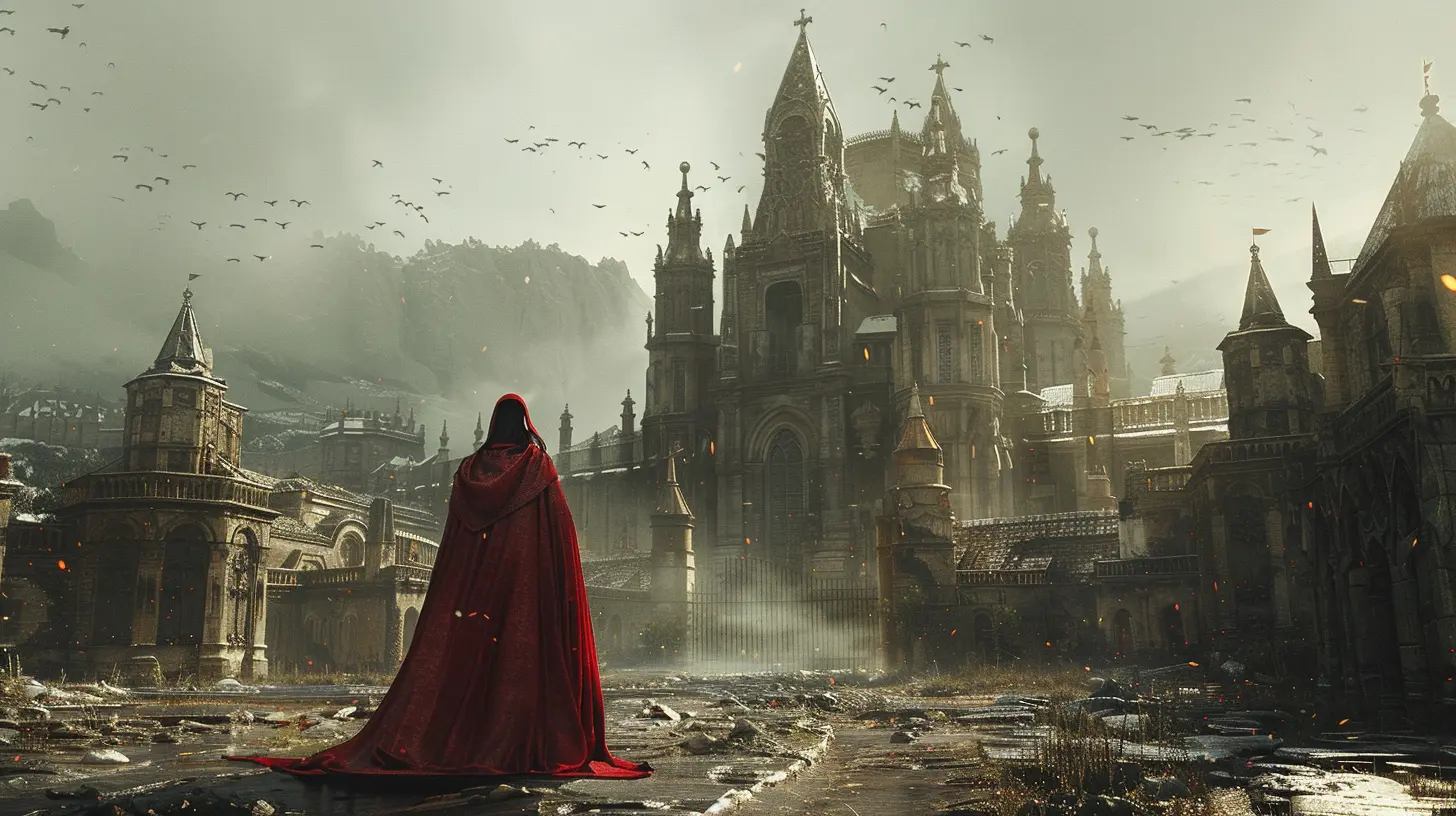Making Player Morality Count: The Ethics of Interactive Storytelling
22 December 2024
When was the last time you played a game and felt genuinely troubled by a decision you had to make? You know, the kind of moment where you put down the controller, stare at the screen, and think, "Wow, what should I do here?" Games have come a long way from the straightforward "rescue the princess" days. Modern games don’t just challenge your reflexes—they challenge your values. And that's where things get fascinating.
Today, we're diving into something deep but oh-so-relevant: how player morality is woven into interactive storytelling and why it matters. Video games aren't just escapism anymore—they’re a medium for ethical exploration. They’re asking us tough questions and holding up a mirror to our humanity. Sounds heavy, right? But don't worry—I promise this is going to be as engaging as your favorite RPG.
Why Morality in Games Matters
Let’s start with the big question: why should we care about morality systems in games? I mean, they’re just games, right? Wrong. Games are more than fun distractions. They’re storytelling machines, and storytelling has always been how humans make sense of the world. Think of ancient myths or epic novels—now, video games are taking their place in that tradition.What makes gaming unique, though, is interactivity. You’re not just reading about a hero wrestling with moral dilemmas. You are the hero. Your choices shape the story and, in some cases, even the world within the game. That’s powerful. It's like you're co-writing the script, and the game is asking you, "What kind of person are you?"
The Evolution of Morality Systems in Games
Okay, a quick history lesson (don’t worry, it’s relevant). Back in the day, games were mostly black-and-white when it came to morality. You were either the shining knight in armor or the mustache-twirling villain. Think of games like Fable or Star Wars: Knights of the Old Republic. These titles introduced morality systems that tracked whether your actions were "good" or "evil," rewarding or punishing you accordingly. It was simple and binary but groundbreaking for its time.Fast forward, and now we’re in the age of nuance. Modern games are ditching the binary approach for something more... human. Instead of just "good vs. evil," they give you shades of gray. Titles like The Witcher 3, Detroit: Become Human, and Mass Effect don’t just track your decisions—they make you question them. The right choice isn’t always clear, and that’s the point. Morality isn’t black and white in real life, so why should it be in games?
What Makes Morality Systems Work?
Not all morality systems are created equal. Some feel tacked on, like they were added just to give the game more depth—but they don’t really impact the story or gameplay. Others? They hit you right in the feels and leave a lasting impression. So, what separates the good from the forgettable?1. Consequences That Matter
Nobody likes making a tough decision, only to realize it had zero impact on the story. (Looking at you, games with "illusion of choice.") A good morality system makes every decision count. It’s like planting seeds—you may not see the consequences immediately, but later on, they grow and shape the story in unexpected ways. For example, in The Witcher 3, a seemingly minor choice like sparing or killing an enemy can come back to haunt—or reward—you hours later.2. Emotionally Charged Choices
The best morality systems tap into your emotions. Games like Life is Strange excel here. Do you sacrifice your best friend to save a town, or do you let the town perish for the sake of love and loyalty? Those are the kinds of dilemmas that keep players up at night. When a game makes you pause and weigh the moral weight of your choices, it’s doing morality right.3. Ambiguity and Gray Areas
Life is messy, and games that embrace this messiness feel more real. A game like Papers, Please—where you play as a border checkpoint officer—throws you into moral dilemmas that have no perfect answer. Do you let in a desperate refugee, knowing it could cost you your job and your family’s safety? Or do you follow the rules and turn them away, leaving them to an uncertain fate? There’s no “correct” choice here, and that’s what makes it so compelling.
The Ethics of It All: Should Games Make Us Question Ourselves?
Here’s where things get a bit philosophical (but stay with me, it’s worth it). By forcing players to face moral dilemmas, are games taking on a responsibility they’re prepared to handle? Should developers think deeply about the ethical implications of the choices they present to players?For example, some critics argue that games can unintentionally reinforce harmful stereotypes or trivialize serious issues. Take Far Cry games, where you’re often cast as a savior figure in a foreign land. Are these games feeding into colonialist fantasies while pretending to offer moral complexity? It’s a slippery slope, and developers need to tread carefully.
On the flip side, games can also be profound tools for empathy. Playing a game like This War of Mine, where you try to survive as civilians in a war-torn country, can open your eyes to the human cost of conflict. In this way, games become not just entertainment but education—and maybe even activism.
Player Morality Beyond Single-Player Games
Morality systems aren’t just confined to single-player, story-driven games. Multiplayer games like Among Us or Rust bring player morality into the spotlight in entirely different ways. Your actions aren’t scripted by a developer—they’re dictated by how you interact with real people.These games create fascinating social experiments. Will you betray your friends for a quick advantage, or will you play by the rules? The lack of a pre-programmed morality system in such games often makes the ethical dilemmas feel even more raw and meaningful. After all, lying to an NPC is one thing, but lying to your buddy who’s sitting right next to you? That’s a whole different beast.
The Future of Morality in Gaming
So, where do we go from here? With advancements in technology like AI and procedural storytelling, the future of morality systems looks insanely promising. Imagine games that adapt dynamically to your unique moral compass—not just preset options but full-on, personalized ethical dilemmas. Creepy? Maybe a little. Cool? Absolutely.Virtual reality (VR) is another space where morality systems could flourish. When you physically step into a game world and have to make choices, the emotional stakes feel even higher. Imagine standing face-to-face with a crying child in VR, deciding whether to help or walk away. It’s not just a choice on a screen anymore—it’s visceral.
Closing Thoughts: Why It All Matters
At the end of the day, games that incorporate morality into their storytelling are doing something remarkable. They’re making us think. In a world where so much media is passive—movies, books, TV shows—games are the one medium that puts us in the driver’s seat. They don’t just ask us to passively consume; they demand that we engage, reflect, and—just maybe—grow.So, the next time you’re forced to make a gut-wrenching choice in a game, take a moment to appreciate what’s happening. You’re not just playing; you’re participating in one of the most exciting evolutions in storytelling. And for that, I say: bring on the moral dilemmas.
all images in this post were generated using AI tools
Category:
Interactive StorytellingAuthor:

Stephanie Abbott
Discussion
rate this article
10 comments
Olympia Hughes
Morality in games: where choices shape stories and players reveal their true selves.
February 3, 2025 at 3:39 PM

Stephanie Abbott
Absolutely! Player choices in interactive storytelling not only drive the narrative but also provide profound insights into individual values and ethics, revealing the deeper complexities of morality within gameplay.
Solstice McGinn
This article raises important questions about player agency and ethical decision-making in games. Interactive storytelling has the potential to shape real-world values, but it’s crucial for developers to navigate these moral landscapes thoughtfully and responsibly.
January 26, 2025 at 5:30 AM

Stephanie Abbott
Thank you for your insightful comment! I completely agree that thoughtful navigation of moral landscapes is essential in interactive storytelling to positively influence player values.
Kirk McWilliams
In the realm of interactive storytelling, choices shape not just the narrative but the very essence of player identity. Yet, what happens when morality blurs? As we navigate this labyrinth of ethics, are we merely puppets, or do our choices echo in the shadows?
January 23, 2025 at 5:06 PM

Stephanie Abbott
Your comment raises an intriguing point about the complexity of morality in interactive storytelling. While choices can define player identity, the blurred lines of ethics challenge us to consider the deeper implications of our decisions and their lasting impact on both the narrative and ourselves.
Wendy Gomez
Great insights on how player choices shape narratives! It's essential to consider ethics in interactive storytelling. Thank you for sharing!
January 16, 2025 at 4:28 AM

Stephanie Abbott
Thank you for your thoughtful comment! I'm glad you found the insights valuable. Ethics truly enrich the narrative experience in interactive storytelling.
Marley McGivern
Player choices in games are like picking toppings on a pizza—every decision adds flavor! Let’s spice things up and see what moral toppings players choose in their quests!
January 10, 2025 at 3:59 PM

Stephanie Abbott
Absolutely! Just like pizza toppings, player choices can greatly enhance the narrative experience, adding depth and complexity to ethical dilemmas in interactive storytelling. Each decision enriches the player's journey!
Zealot Peterson
Player choices shape narratives in profound ways! By weaving ethics into storytelling, games can challenge our morality, spark meaningful reflection, and ultimately transform players into active participants in their own stories.
January 4, 2025 at 3:58 PM

Stephanie Abbott
Absolutely! Player choices indeed enrich narratives, fostering deep engagement and reflection on ethical dilemmas that elevate the gaming experience.
Xander Patel
This article presents a compelling exploration of player morality in games, highlighting how ethical choices can enhance storytelling. Balancing player agency with meaningful consequences remains crucial for evolving the narrative experience in interactive media.
January 2, 2025 at 4:10 AM

Stephanie Abbott
Thank you! I appreciate your insights on the importance of balancing player agency and consequences in enhancing narrative depth. It's a crucial aspect of interactive storytelling.
Vesperos McNeal
This article offers an insightful exploration of player morality in interactive storytelling. It highlights how meaningful choices can shape narratives and impact player engagement. By integrating ethical dilemmas, games can foster deeper emotional connections and responsibility, making the player’s journey not just entertaining, but also profoundly thought-provoking.
December 24, 2024 at 3:40 AM

Stephanie Abbott
Thank you for your thoughtful comment! I'm glad you found the exploration of player morality and its impact on storytelling engaging. It’s exciting to see how games can provoke deeper reflection and connection.
Rylan Clark
Thoughtful insights on player choices!
December 23, 2024 at 6:05 PM

Stephanie Abbott
Thank you! I'm glad you found the insights engaging—player choices truly shape the narrative in meaningful ways.
Kimberly McDaniel
Ah yes, because nothing screams 'fun gaming experience' like having to ponder my life choices while dodging pixelated monsters. Who knew moral dilemmas could come between me and my loot?
December 22, 2024 at 6:17 AM

Stephanie Abbott
I appreciate your humor! Balancing moral choices with gameplay can be challenging, but it deepens the narrative and enhances the gaming experience.
MORE POSTS

Exploring Themes of Time Travel in Interactive Story-Driven Games

The Expansion of Storytelling in Action-Adventure Games

How Tabletop Games are Revolutionizing Educational Tools

Behind the Scenes: How Developers Create Immersive Game Worlds

Gaming Accessories You Didn’t Know You Needed

The Role of World-Building in Immersive Interactive Experiences

Leaked DLCs: Expansions We Weren't Supposed to See Yet